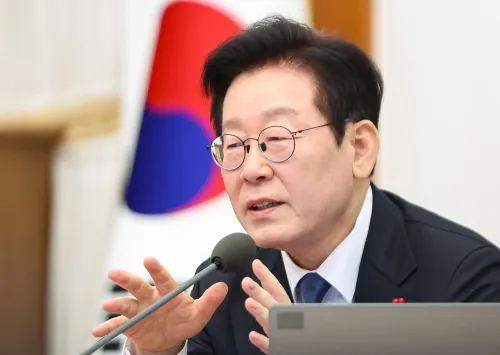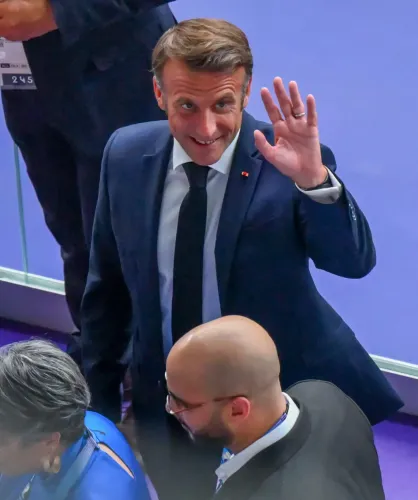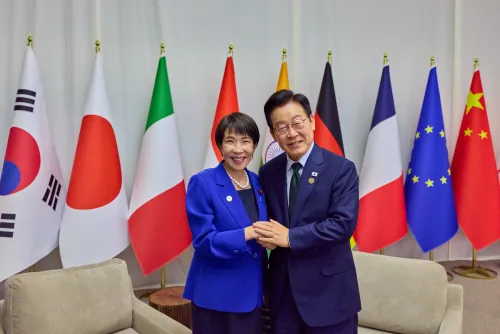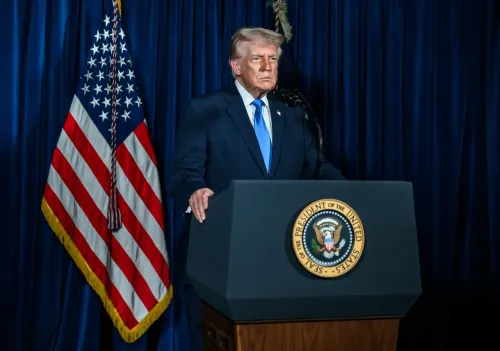What Happened During Trump's Meeting with Netanyahu in Washington?
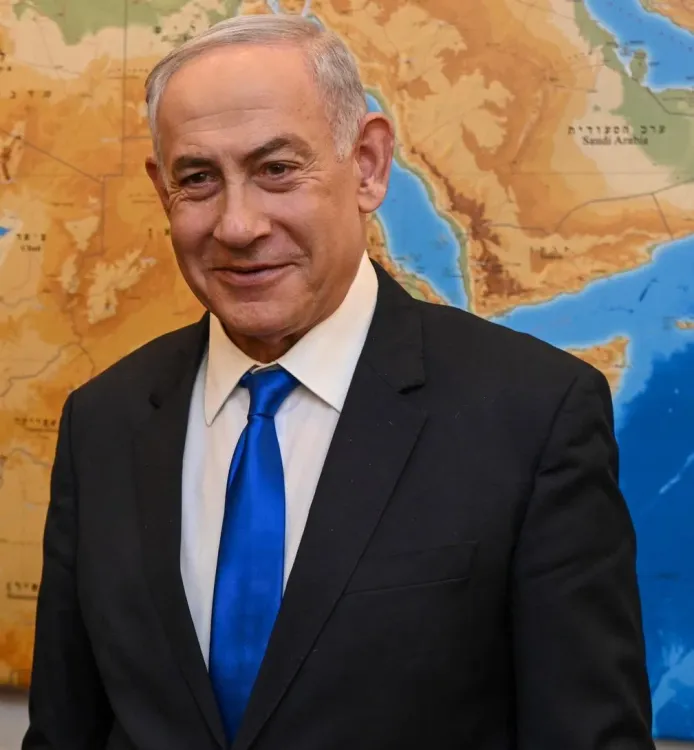
Synopsis
Key Takeaways
- Trump and Netanyahu held crucial discussions on the Gaza conflict.
- A potential 60-day ceasefire agreement is being explored.
- International condemnation surrounds proposals for the relocation of Palestinians.
- Ongoing negotiations continue between Hamas and Israel.
- Over 57,500 fatalities reported in Gaza since the conflict began.
Washington, July 9 (NationPress) - US President Donald Trump and Israeli Prime Minister Benjamin Netanyahu convened on Tuesday for the second consecutive day to deliberate on the escalating conflict in Gaza.
This meeting follows a statement from Trump's Middle East envoy, Steven Witkoff, indicating that a 60-day ceasefire agreement between Israel and Hamas might be within reach.
Netanyahu arrived at the White House for the private meeting, which was not accessible to the press, as reported by the BBC.
Earlier that day, Netanyahu also conferred with US Vice President J.D. Vance and had a lengthy dinner discussion with Trump on Monday. This marks Netanyahu's third official visit to the US during Trump's second term.
In addition, Netanyahu held discussions with Mike Johnson, the Speaker of the House of Representatives.
Following their meeting, the Israeli Prime Minister expressed skepticism about the conclusion of Israel's military operations in Gaza, although he acknowledged that negotiators are “certainly working” towards a ceasefire.
“We still have to finish the job in Gaza, release all our hostages, and dismantle Hamas' military and governmental capabilities,” Netanyahu stated.
Witkoff later mentioned that the gap between Israel and Hamas on previously contentious issues is narrowing, and he expressed hope for a temporary ceasefire to be finalized this week.
The proposed deal would entail the release of ten living hostages and the remains of nine deceased individuals.
Trump informed reporters on Monday evening that ceasefire discussions are “progressing very well.” However, Qatar, a key mediator, indicated on Tuesday that additional time is necessary for negotiations.
“I cannot provide a specific timeline right now, but we will need time for this,” said Majed Al-Ansari, the spokesman for Qatar's foreign ministry.
During their dinner on Monday, Trump and Netanyahu were questioned regarding earlier proposals to permanently relocate Palestinians from Gaza.
Trump claimed to have cooperation for this initiative from Israel's neighboring countries, while Netanyahu mentioned collaboration with the US to identify nations willing to provide Palestinians with a “better future.”
“If people wish to remain, they may, but if they want to leave, they should have that option,” Netanyahu noted.
Proposals to forcibly relocate Palestinians have faced condemnation from the UN, Arab leaders, human rights organizations, and Western governments.
Arab nations, spearheaded by Egypt, have proposed an alternative plan focused on extensive reconstruction in Gaza while allowing Palestinians to remain in temporary housing.
The UN has cautioned that deporting or forcibly transferring civilians from an occupied territory is strictly forbidden by international law and amounts to ethnic cleansing.
Before resuming discussions on Tuesday, a Palestinian source familiar with the negotiations informed the BBC that no progress had been made.
The latest negotiations between Hamas and Israel initiated on Sunday.
The ongoing conflict in Gaza erupted on October 7, 2023, when Hamas attacked Israel, resulting in the death of 1,200 individuals and the abduction of 251 hostages, according to Israeli reports. In response, Israel's military operations have resulted in at least 57,500 fatalities in Gaza, according to the territory's Hamas-run health ministry.


